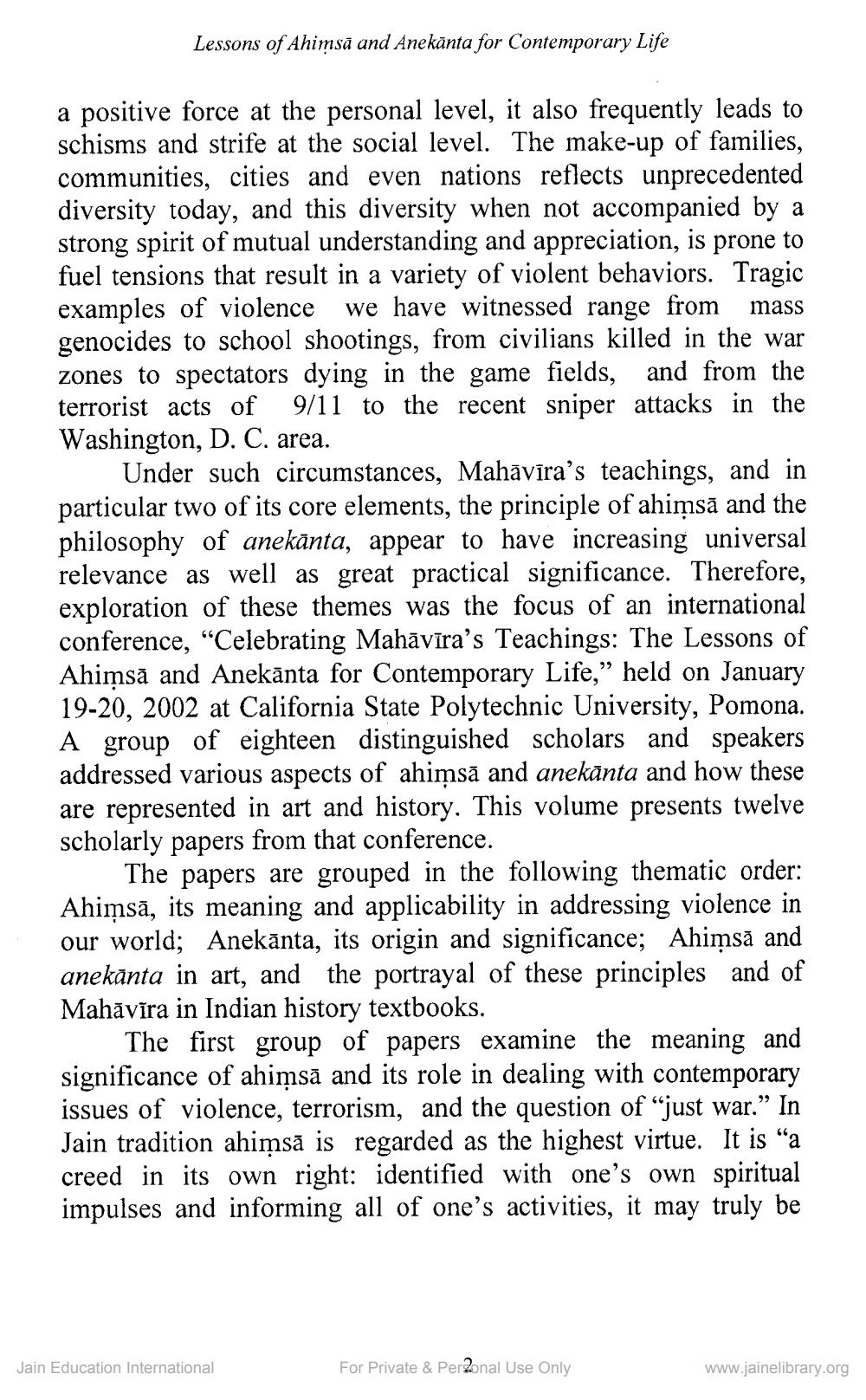Book Title: Lessons of Ahimsa and Anekanta for Contemporary Life Author(s): Tara Sethia Publisher: California State Polytechnic University Pomona View full book textPage 9
________________ Lessons of Ahimsa and Anekānta for Contemporary Life a positive force at the personal level, it also frequently leads to schisms and strife at the social level. The make-up of families, communities, cities and even nations reflects unprecedented diversity today, and this diversity when not accompanied by a strong spirit of mutual understanding and appreciation, is prone to fuel tensions that result in a variety of violent behaviors. Tragic examples of violence we have witnessed range from mass genocides to school shootings, from civilians killed in the war zones to spectators dying in the game fields, and from the terrorist acts of 9/11 to the recent sniper attacks in the Washington, D. C. area. Under such circumstances, Mahāvīra's teachings, and in particular two of its core elements, the principle of ahimsă and the philosophy of anekānta, appear to have increasing universal relevance as well as great practical significance. Therefore, exploration of these themes was the focus of an international conference, “Celebrating Mahāvīra's Teachings: The Lessons of Ahiņsā and Anekānta for Contemporary Life,” held on January 19-20, 2002 at California State Polytechnic University, Pomona. A group of eighteen distinguished scholars and speakers addressed various aspects of ahimsā and anekānta and how these are represented in art and history. This volume presents twelve scholarly papers from that conference. The papers are grouped in the following thematic order: Ahimsā, its meaning and applicability in addressing violence in our world; Anekānta, its origin and significance; Ahimsă and anekānta in art, and the portrayal of these principles and of Mahāvīra in Indian history textbooks. The first group of papers examine the meaning and significance of ahimsā and its role in dealing with contemporary issues of violence, terrorism, and the question of “just war.” In Jain tradition ahimsā is regarded as the highest virtue. It is "a creed in its own right: identified with one's own spiritual impulses and informing all of one's activities, it may truly be Jain Education International For Private & Per2onal Use Only www.jainelibrary.orgPage Navigation
1 ... 7 8 9 10 11 12 13 14 15 16 17 18 19 20 21 22 23 24 25 26 27 28 29 30 31 32 33 34 35 36 37 38 39 40 41 42 43 44 45 46 47 48 49 50 51 52 53 54 55 56 57 58 59 60 61 62 63 64 65 66 67 68 69 70 71 72 73 74 75 76 77 78 79 80 81 82 83 84 85 86 87 88 89 90 91 92 ... 170
